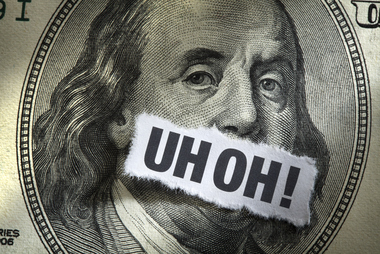Do you live paycheck to paycheck? An unforeseen problem can become a disaster if you’re not prepared. The cumulative result of overspending can put you in a precarious position. If an economic recession were to hit, it would leave you with very few options.
Financial planners tell you to keep three months’ worth of expenses in an account that can be accessed quickly. Loss of employment or a serious health issue can drain your savings and place you in a cycle of debt. A three-month buffer can keep you from losing your house.
What other mistakes should we steer clear of?
- A top financial planning mistake is excessive or frivolous spending. Great fortunes are often lost one dollar at a time. Picking up that double mocha cappuccino, having dinner out, ordering another pay-per-view movie — every little item adds up. Just $25 per week spent on takeout costs you $1,300 per year.
- Do you need the expenses you pay for every month, year after year? Cable television, music services and fancy gym memberships force you to pay unceasingly but leave you owning nothing. When money is tight, or you just want to save more, creating a leaner lifestyle can go a long way to fattening your savings and cushioning yourself from financial hardship.
- Using credit cards to buy essentials puts you at risk of having to pay double-digit interest rates on gasoline, groceries and a host of other items that are gone before the bill is paid in full. Credit card interest rates make the price of the charged items a great deal more expensive. It can make you spend more than you earn.
- Borrowing money to buy a car has you paying interest on a depreciating asset, amplifying the difference between the value of the car and the price paid for it. Don’t trade in your car every two or three years and lose money on every trade. Of course, sometimes you have no choice but to take out a loan to buy a car. But consider buying one that uses less gas and costs less to insure and maintain.
- Refinancing your home and taking cash out on it means giving away ownership to someone else, not to mention the thousands of dollars in interest and fees. Smart homeowners want to build equity, not make payments into perpetuity. You’ll end up paying way more for your home than it’s worth.
- If you don’t get your money working for you through income-producing investments, you can’t stop working — ever. Make monthly contributions to designated retirement accounts for a comfortable retirement. Take advantage of tax-deferred retirement accounts and your employer-sponsored plan. Consider the time your investments have to grow and how much risk you can tolerate.
- Not having a financial plan means you don’t know where you are, so you don’t know where you are going. Spend time planning your finances — make it a priority.
Avoid the dangers of overspending: Monitor the little expenses that add up quickly, and then move on to monitoring the big expenses. Think carefully before adding new debts to your list of payments. Save some of what you earn monthly and spend time developing a sound financial plan.
After all, to accomplish anything you need to have a plan. Ask yourself where you want to be in five, 10 or 20 years. This is the start of avoiding financial planning errors.
